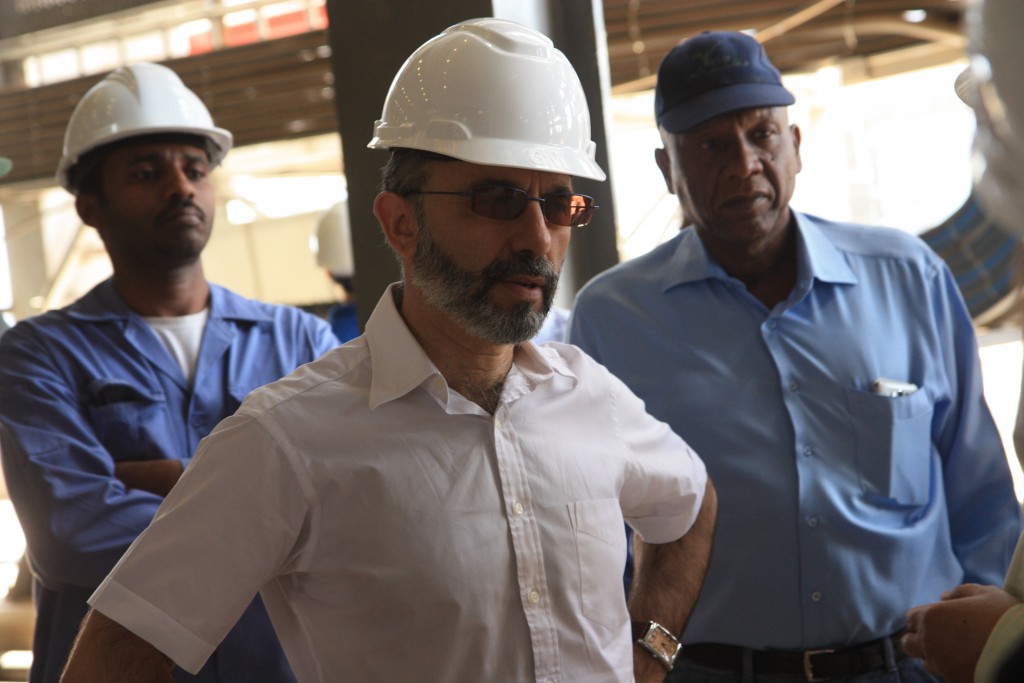One of the pleasure as well as duties of an Ambassador is to visit as much as possible of the country to which he is posted. How else can you get a sense of the size, diversity and make-up of a country?
You can’t really understand a country and its people by just sitting in the capital. So, last week I spent 3 days in White Nile, Sennar and Gezira states.
The focus was mainly commercial and economic. We visited the Kenana and White Nile Sugar Companies, the Gezira scheme, an agricultural project, the universities of Gezira and Gezira-Aba and the Gezira broadcasting corporation. I spent time some agricultural companies. I met with the acting/deputy Governors and talked mainly about economic opportunities in their States. I was greeted with typical Sudanese hospitality by all.
I also visited the Kosti holding camp for Southerners waiting to travel to South Sudan. I found it immeasurably sad: huts of sticks and torn cloths, no jobs or schools, virtually no medical services, little hope. They’ve been there in forced idleness for 2 or 3 years while a few kilometres down the road farms cry out for labourers.
Hopefully the implementation of the Sudan/South Sudan agreements will finally liberate them.
Some impressions:
-
How big Sudan is (I am still struck by this every time I travel). I spent a lot of time in the car! The Gezira scheme is some 1.2 million Fedans, more than all the cultivated land of the UK;
-
The lingering UK presence in the irrigation schemes, the dams, the universities the period architecture. We met representatives of a British engineering company which is working on repairs of Sennar dam. Of course I was asked whether British companies, which built the Gezira scheme originally could rebuild it. Maybe; but a lot will depend on what exactly is required, how it would be financed and what role State or Federal Government might play;
-
A sense of what Sudan can achieve: new investments in major sugar and ethanol plants, brand new agricultural machinery in the fields and a leading university. There was of course lots of interest in Sennar and White Nile in particular in the prospects of trade with South Sudan;
-
But also a sense of past investments squandered: the dismemberment of the Gezira scheme, symbolised most poignantly perhaps in the disintegrating railway line with its disjointed rails, vanished sleepers and collapsing embankments.
-
Not a single women in any of the meetings, with the honourable exception of the Islamic and Social Studies Faculty of the university of Gezira Aba. But I did meet separately one very high powered UK-based Sudanese scientist whose patented discovery will help improve the productivity of sugar cane production.
There is a consensus among the agricultural community that Sudan’s enormous agricultural potential could make the country food-secure and contribute more to national prosperity than ever oil did.
It could make a huge contribution to ending poverty and creating employment. Gezira shows what has been achieved in the past and could provide a foundation for the future. On previous visits in Sudan I have seen leading-edge farming practice.
What is required is effective partnership between the Government and private sector: Government to provide the infrastructure, investment climate and education; private sector to lead the business, develop the markets (at home and abroad) and invest in innovation. Sudan is not short of overseas partners keen to play a role, and in many cases already doing so.
Some UK companies are involved already, or interested in becoming so. I heard about the links between Sudanese and UK agricultural research institutions. We are looking at how we might help to support the development of the supply chain, to give smallholders the opportunity to work with big agro-business.

